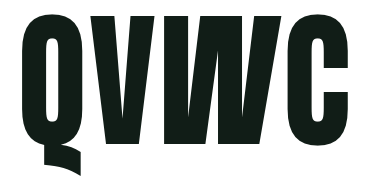Erin Gough - Legacy Books
By Erin Gough
I discovered feminist literature as a young adult by accident. What I was actually looking for was descriptions of girls kissing girls. Detailed descriptions. Preferably with instructions in the footnotes.
The first lesbian kiss I ever read in a book was in first year uni. It was in Mrs Dalloway by Virginia Woolf, when Sally kisses Clarissa: “Then came the most exquisite moment of her whole life,” Woolf writes. “Sally stopped; picked a flower; kissed her on the lips. The whole world might have turned upside down!”
It’s how I felt as I read it. To see such a thing in a work that was considered Legitimate Literature, was mind blowing for me. I read to the end to see if Sally kissed Clarissa again. She didn’t, which was disappointing, obviously. But it was okay. Because what I found was Virginia Woolf – someone who expressed her thoughts in a way I recognised, who offered critiques of the roles women were obliged to play, who enunciated my secret desires – for rebellion, for creative expression, and for sex.
A few years later I read Sarah Waters’ Fingersmith, about two young women trapped in a secluded house in Victorian Britain with a controlling and sadistic uncle figure, who has an unhealthy obsession with literary porn. Told from the alternating perspectives of the two young women, Waters reclaims the Victorian literary canon from men. Not only that, she reclaims female eroticism from the male gaze. Because, you see, the two young women fall in love, and rather than objectifying them in the way that so much ‘romp’ literature does, Waters privileges their thoughts and desires, presenting an alternative to the ‘girl-on-girl action’ so often produced for male consumption.
This was a story written for me to read.
And at last, some instructional detail.
And then came Dorothy Porter’s The Monkey’s Mask, the Australian detective verse novel, that again subverts and reclaims – this time, noir fiction. Told from the perspective of lesbian PI Jill Fitzpatrick, it uses the lenses of gender, sexuality and poetry to re-present the tropes of crime fiction: “I’m not tough, droll or stoical” Fitzpatrick says of herself. “I droop after wine, sex or intense conversation/ The streets coil around me when they empty/ I’m female/ I get scared.”
Reading these books made me recognise the feminism in books I’d read before I knew the meaning of the term.
As a teenager, I was among the first generation of readers to discover Melina Marchetta’s Looking For Alibrandi. Smart and strong, Josephine Alibrandi faces a world of prejudice – because her mother committed the sin of having a child outside of marriage; because she is an Italian-Australian from a working class background in a white middle class world; and because she’s a young woman, which means she faces sexual harassment as well. Alibrandi is a complex, intersectional work. It is humanist, it’s hilarious, it is feminist. Importantly for me, it was set in Sydney, in a world I recognised intimately. I might not have been from an Italian family, or in love with a boy like Jacob Coote, but I knew these people, I had gone to that school, I had been to Stanmore Maccas. What I learned from Marchetta was feminism in my local context; and that there might even be a way for me as a writer to explore through fiction the prejudices I faced myself.
In high school, partly because I hadn’t yet come to terms with my sexuality, I don’t remember accessing any stories with queer characters. That’s not to say they weren’t around, but there were only a handful, and unsurprisingly, they weren’t on the syllabus at my religious girls’ school. This was the main driver for me to write the two novels I’ve written – so that there are more than a handful of stories out there that young Australians can access at that crucial age when we are trying to figure out our place in the world. Stories they can see themselves in, to feel that sense of validation that comes with recognising yourself on the page. Both my books have lesbian protagonists. My latest book, Amelia Westlake is explicitly feminist and activist – it’s been described as a queer feminist heist rom com, which I love. I started writing it when the news was full of Royal Commission into Institutional Child Abuse stories, which got me thinking in particular about power structures within schools and how they operate to the detriment of students. I had just finished writing it as the #metoo hashtag exploded, and the book’s storyline resonates with those themes too. What I wanted it to be was a celebration – of queerness and femaleness – but also a story of solidarity; one that functions as a call to arms. Because who will fix this fucked up system if not us?
Australia needs more feminist stories – a breadth of stories that actually represent the range of experience in our community. Fortunately (although still too slowly) we are hearing stories from a wider range of voices. There are two young Australian writers who have blown me away in recent years. Ellen van Neerven, whose writing speaks to her female Indigenous experience, to deep-seated racism, to colonisation, and to queerness. And Nevo Zisin, whose memoir Finding Nevo, unpacks gender and the politics of gender with incredible wisdom, and in crystal clear prose. I feel like we have so many incredible feminist writers to be grateful for, and so many more to look forward to.
Erin Gough was part of the Legacy Books line up at FWF18 Sydney.
